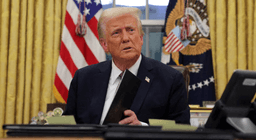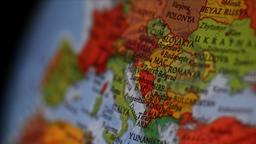
According to the new IMF World Economic Outlook’s global growth estimates, there is light at the end of the tunnel. We are going to have a global recovery in 2021 and 2022, and guess what? The recovery is powered by two engines: the US and China. This is crucial to realize, since many are still are beating the drums of a cold war of sorts between the two giants, be it in trade, maritime borders, or any number of other issues. The world must not fall back on this instinct, especially not as we are nearing recovery from the pandemic.
The US is expected to grow at 6.4 percent, higher than the estimates in the absence of pandemics, while it is 8.4 percent for China. What does that amount to? Think of China and the US as two engines of the same plane. The balance between them is crucial for the functioning of the global economy, and it is going to stay that way for the foreseeable future.
Have you seen the latest Forbes report about the number of billionaires around the World? This year, Beijing overtook New York City 100 to 99. Beijing, Shenzhen, Shanghai and Hangzhou are all in the top ten list, as well as Hong Kong. Only NY and San Francisco are on the list from the US. The Chinese economy is too dynamic to go down in a cold war confrontation.
Yet I also agree that it’s not good for the rich to get richer, especially in the year of the pandemic, when the poor have been suffering in new ways. The recent Chinese policy shift to strengthen the middle class looks to be designed to address that problem. That’s what I understand from the new policy buzzword in China: Demand side reform. It’s both to deal with rising inequality and also make growth more sustainable by raising domestic demand.
All those discussions about China being the new adversary in the so-called second cold war is premature. If both the US and China are global growth engines, we can expect less political conflict and more economic competition. Can this competition be turned into more economic cooperation? I think the pandemic has increased the chances of that happening.
Although there is global recovery, it is mired with uncertainties, as noted by IMF chief economist Gita Gopinath. “Recoveries are also diverging dangerously across and within countries, as economies with slower vaccine rollout, more limited policy support, and more reliance on tourism do less well” she said. This means that there is no way of getting out of this mess without continued synchronized action by central banks and finance ministries.
Note that the G20 has become an even more useful venue to jumpstart the global economy after the virus. Finance ministers and central bank governors of the G20 countries come together twice a year to coordinate their actions under the guidance of the IMF. The downside risk is from emerging and developing countries, mind you. Recovery in the US means that money will be sucked out of highly indebted emerging countries, such as Turkey. Developed countries are already driving up the price of vaccines, burdening the already strained social safety nets in our part of the world.
For those expecting a “cold war take two” with China, let me reiterate that the global economy needs China for rapid recovery. This is a time for the US and China to cooperate directly in order to make the G20 work for developing countries. Is this doable? Yes. The two already cooperated for sovereign debt restructuring under IMF guidance last year. They merely need to keep the faith, and refrain from succumbing to the old time warsongs.





